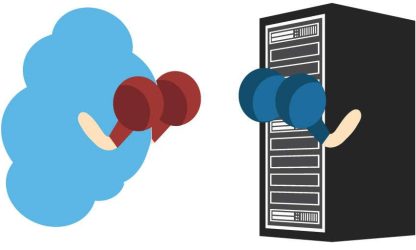 Health insurance and related guidelines set forth in the Health Insurance Portability and Accountability Act (HIPAA) are widely discussed topics these days. While individuals are gaining health insurance, switching providers, or debating the merits of the Affordable Care Act, businesses are focusing their attention on ensuring that they meet HIPAA guidelines.
Health insurance and related guidelines set forth in the Health Insurance Portability and Accountability Act (HIPAA) are widely discussed topics these days. While individuals are gaining health insurance, switching providers, or debating the merits of the Affordable Care Act, businesses are focusing their attention on ensuring that they meet HIPAA guidelines.
Failing to abide by HIPAA guidelines could result not only in financial sanctions by the government but also in loss of customer business and confidence. It’s no surprise, then, that businesses are seeking knowledge about HIPAA guidelines, how to ensure compliance with them, and which services might simplify the compliance process.
HIPAA Guidelines
Enforced by the Civil Rights Office of the U.S. Department of Health and Human Services, HIPAA guidelines are intended to protect patient data in the United States. Businesses that store confidential health information are required by law to protect that data.
HIPAA can be broken down into four areas of protection:
- The privacy rule stipulates privacy protection for health data that is individually identifiable.
- The security rule applies to health information that is electronically protected; it establishes national requirements that govern the security of that information.
- The breach notification rule requires that any organization charged with protecting health information to issue notification if a breach occurs.
- The patient safety rule’s confidentiality provision mandates that individually identifiable information be protected even when it is used to re-evaluate a patient-related safety concern and/or improve the safety of all patients.
It is the responsibility of the business to implement and maintain physical, network, and process security measures to protect client information.
Ensuring Compliance
In the end, businesses are just as serious about data protection as the U.S. government is. They are asking for backup and data protection services that can enable the process without requiring system overhauls. The services are available, but businesses must be discerning when gauging whether a service is right for them.
When choosing a data protection service, businesses should aim for services that meet the following requirements:
- Perhaps most obvious, the service and software should be HIPAA-compliant. It is worth the time and attention to inquire directly about this.
- The service should employ encryption keys to safeguard client information during the backup process. This renders it impossible for hackers to authorize information.
- The data center that houses the data must also employ encryption techniques. No one should be able to access the information without proper authorization.
- Automated backup in the cloud and disaster recovery protection should be the status quo. If a business experiences a natural disaster, theft, hardware failure, or virus attack, the service provider must ensure protection of client data throughout the disaster recovery process.
The Details
Data encryption and HIPAA regulations can get quite complex, so it’s important for businesses to keep client protection at the forefront of their decisions. Client information should belong to the client and should never be shared, sold, or used for target advertising. In addition, if a business decides to end its relationship with the provider, that business’s client information should leave along with it.
Customers need to be assured and reassured that their confidential information will not be compromised, and businesses need guarantees that they are complying with HIPAA guidelines. The tasks are not easy, but they are achievable.



